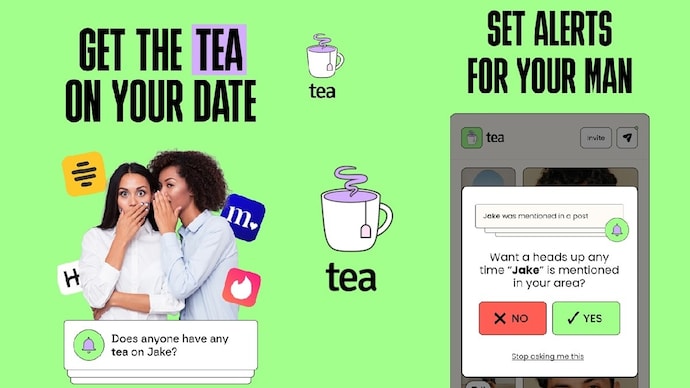
In a decisive move reflecting its firm stance on user safety and privacy, Apple has officially removed the popular dating review apps, Tea and TeaOnHer, from its App Store worldwide. The action came after months of internal investigations, user backlash, and multiple reports indicating potential misuse of sensitive personal data. The takedown, executed on October 21, followed a surge of public concern about how these platforms managed user privacy and moderated shared content.
According to app intelligence firm Appfigures, both apps were at the center of an “excessive number of user complaints and negative reviews,” including reports suggesting that personal information, potentially linked to minors, had appeared on the platforms. Despite repeated warnings from Apple to address these violations, the developers allegedly failed to resolve the fundamental issues. In a statement to TechCrunch, Apple confirmed that the apps breached App Store Guidelines 1.2, 5.1.2, and 5.6 — policies governing moderation, user privacy, and developer compliance. Apple deemed the violations “severe enough to justify complete removal from all regions.”
Launched in 2023, Tea quickly became one of the top-grossing social apps of the summer, attracting attention for its unique yet controversial concept. It allowed women to anonymously share experiences and rate men they had dated, creating a crowdsourced database of dating behavior labeled with “red flag” and “green flag” tags. Following Tea’s explosive growth, its companion app TeaOnHer launched shortly after, allowing men to rate women in similar fashion. While both platforms gained millions of downloads and a devoted user base, they also faced mounting criticism from privacy experts, digital rights advocates, and legal professionals who warned of risks involving defamation, data misuse, and lack of consent.
Understanding Apple’s App Store Review Guidelines
Apple enforces some of the strictest compliance measures for apps that feature user-generated content. Under Rule 1.2, developers must implement robust reporting tools and swiftly remove inappropriate or harmful material. Rule 5.1.2 explicitly prohibits apps from collecting, using, or sharing personal data without explicit consent, while Rule 5.6 empowers Apple to act against developers who repeatedly violate its code of conduct or accumulate persistent negative feedback. In its internal audit, Apple determined that both Tea and TeaOnHer repeatedly failed to meet these obligations, especially in relation to data protection involving minors.
In a statement shared with Business Insider, Apple clarified that both applications “did not meet the essential standards for content moderation and user privacy,” noting a pattern of user complaints, repeated developer communications, and unresolved safety issues. The company further emphasized that despite numerous opportunities for correction, “core compliance gaps” persisted, leaving Apple no choice but to remove the apps from its ecosystem.
Developer’s Response and Defense
Lampkin, the developer behind TeaOnHer, expressed disappointment at Apple’s decision, claiming that the team had introduced significant improvements to address moderation challenges. According to Lampkin, the app had implemented advanced AI filtering with a 2,000-word keyword system, manual review teams, enhanced protections for minors, and anti-cyberbullying safeguards. He further added that the company had undergone “over 20 rounds of review” with Apple and had taken “all possible corrective actions,” including removing hundreds of flagged posts daily. Despite these claims, Apple maintained that the implemented measures did not sufficiently address the underlying privacy and moderation violations.
What Happens Next?
As of now, both Tea and TeaOnHer remain available on the google Play Store, though it remains uncertain whether Google will take similar action. The controversy has reignited global discussions about tech platform accountability, user safety, and ethical standards in online dating apps. Apple’s move underscores its commitment to enforcing strict App Store policies designed to safeguard user privacy and promote digital responsibility.
Industry experts view Apple’s decision as a strong message to developers: innovation cannot come at the expense of user trust, safety, or data integrity. As privacy expectations continue to evolve, this case highlights the delicate balance between open digital expression and the ethical duty of tech companies to protect their users.
For breaking news and live news updates, like us on Facebook or follow us on Twitter and Instagram. Read more on Latest Technology on thefoxdaily.com.






COMMENTS 0